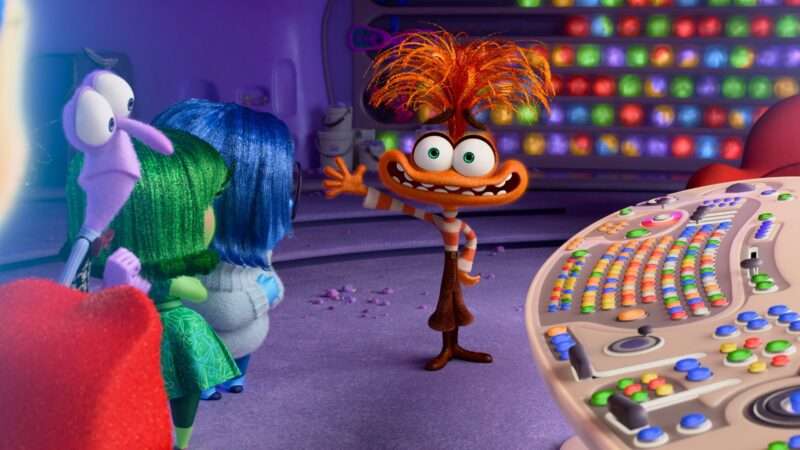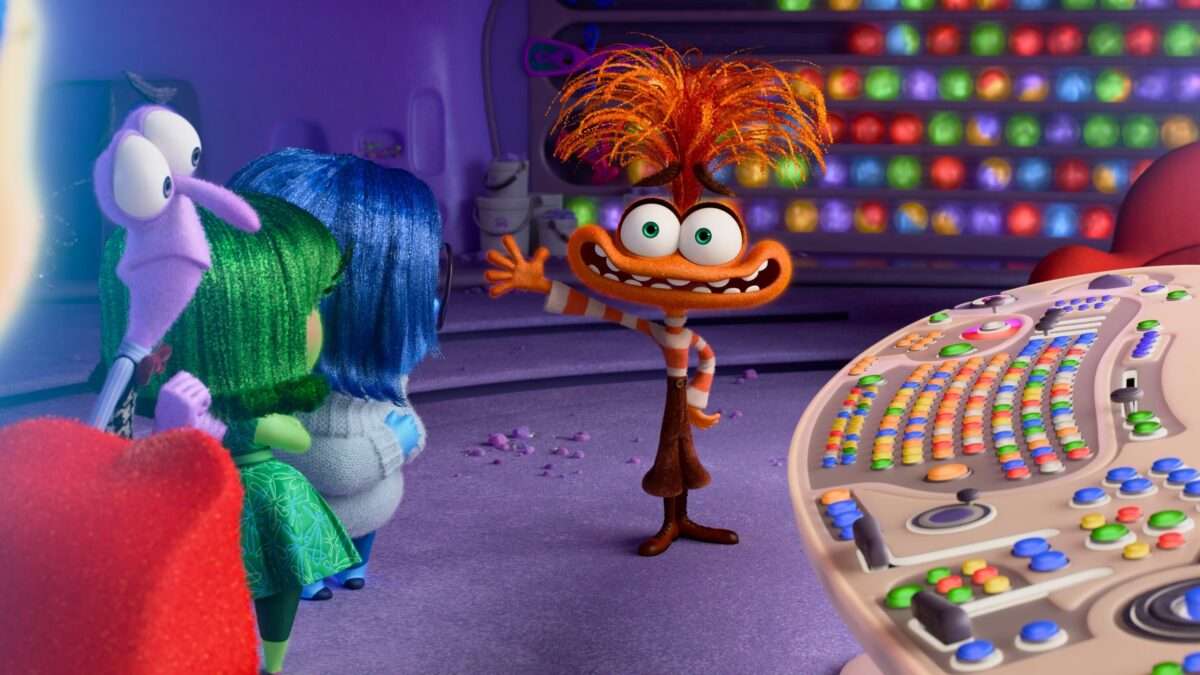Is Inside Out 2 Secretly About Helicopter Parenting?

Pixar's Inside Out, released in 2015, was a delightful—if tear-jerking—journey through the mind of a precocious 11-year-old girl named Riley and the five emotions (Joy, Sadness, Anger, Fear, and Disgust) that attempted to pilot her subconscious through a disruptive cross-country move.
The first Inside Out arrived on the precipice of a major change in how American culture treats mental health. While the first film's handling of Riley's slump into depression felt boundary pushing, its sequel comes at a time when the risks of talking too much about mental health are starting to be examined.
In Inside Out 2, Riley faces another mental health catastrophe. Two years have passed, and Joy—voiced by an energetic Amy Poehler—is still leading Riley's team of emotions. The now-teenage Riley has just graduated middle school with top marks, two best friends, and a solid self-concept lovingly curated by Joy.
However, peace doesn't last for long. The night before Riley is set to attend a sleepaway hockey camp, puberty—coming in the form of a literal wrecking ball—blasts into her subconscious. As part of Riley's mental overhaul, she gets four new emotions: the bright orange, Animal-esque Anxiety (voiced by a jittery Maya Hawke), Ennui, Embarrassment, and Envy.
Riley's new emotions quickly take over, insisting that she needs more complex, sophisticated emotions to guide her, leaving the old crew literally bottled up, trapped in a dark vault in the back of Riley's brain.
Ruled by Anxiety, things quickly go south for Riley, who becomes convinced that the only way to ensure that she isn't lonely in high school is to get on her new school's competitive, championship-winning hockey team. As a result, she becomes crippled by self-doubt—and ends up alienating the friends she already has.
In order to save her from completely spiraling out of control, the old team of emotions must journey through the labyrinth of Riley's mind, back to her mental control panel before it's too late.
For those familiar with the first film, Inside Out 2 hits many of the same beats as its predecessor. Riley faces a big life change, and to weather it, Joy has to learn to relinquish some control over Riley's mind. In the first film, that meant letting Riley feel sadness. In the sequel, the lesson is a bit more complicated: Joy learns that she needs to let Riley develop a multifaceted self-concept—one that includes acknowledgment of both her strengths and her flaws.
At a time when concern about skyrocketing rates of depression and anxiety among teenagers is at a high, Inside Out 2 ultimately presents a solution that wouldn't be amiss coming from Jonathan Haidt or Lenore Skenazy.
In the film, Riley's emotions—especially Joy and Anxiety—ultimately serve a parental role, attempting to protect her and lead her to make good choices, while also having limited ability to control her actions. Riley can only become well-adjusted when her most active emotions learn to relinquish some control.
In Inside Out 2, it's not hard to see Anxiety as a stand-in for an ever-hovering helicopter parent. Anxiety is motivated by an earnest desire to secure Riley's future, but her relentless planning and prodding ultimately make Riley miserable. As in the first film, Joy too has to learn to let go—though that particular beat is slightly less straightforward than in the first Inside Out.
While Inside Out 2 still has plenty of tear-jerking moments, the—ahem—emotional core of the film is less solid. The new emotions aren't as fully developed as their predecessors, and some of the old emotions end up getting lost in the shuffle. The climax of the film, too, doesn't have the same gut-punching impact as the first film's. However, while Inside Out 2 doesn't quite reach the heights of its predecessor, I found it hard to leave the theater with any hard feelings.
The post Is <i>Inside Out 2</i> Secretly About Helicopter Parenting? appeared first on Reason.com.

